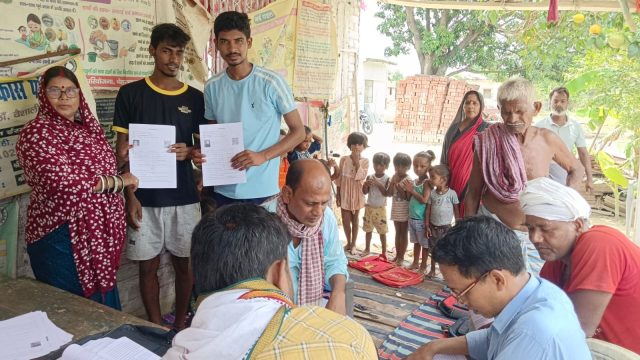The Election Commission of India (ECI) has once again found itself at the center of a major political debate. Following the controversy surrounding the Statewide Integrated Roll (SIR) exercise in Bihar, the poll body is reportedly taking a cautious approach before launching a similar initiative across the country. The move to consult political parties beforehand reflects both lessons learned from Bihar and the Commission’s intent to avoid any perception of bias in its functioning.
The Bihar SIR row erupted earlier this year when opposition parties raised concerns about alleged irregularities in the process of updating electoral rolls. Many parties argued that the exercise, though aimed at streamlining and modernizing voter lists, lacked transparency and adequate consultation. Questions were also raised about the accuracy of data collection and whether the process could have inadvertently disenfranchised sections of the electorate.
The controversy brought to light the delicate balance the EC must maintain—modernizing India’s vast and complex voter rolls while ensuring credibility and political consensus. Electoral rolls are the backbone of India’s democracy; even minor errors can snowball into large-scale disputes that undermine public confidence. For a nation with over 900 million eligible voters, the margin of error cannot be taken lightly.
By deciding to involve political parties before implementing a nationwide electoral roll initiative, the EC appears to be embracing inclusivity and transparency. Political consultation is not just a procedural formality; it allows parties across the spectrum to raise concerns, suggest safeguards, and build a consensus around the methodology. This step could significantly reduce the chances of post-facto allegations of manipulation or partisanship.
The pan-India roll exercise itself carries immense promise. The idea is to create a uniform, integrated, and digitized database of voters across all states. This could help address persistent challenges such as duplication of names, migration-related inconsistencies, and missing entries. Additionally, integration with Aadhaar or other identity databases has often been discussed as a way to ensure authenticity, though such moves have raised questions about privacy and data security.
For the EC, the Bihar episode serves as a timely reminder that even the most well-intentioned reforms must be anchored in trust. Electoral integrity is not merely about technical accuracy—it is also about perception. If voters and political stakeholders believe the process is biased, then the legitimacy of elections could be questioned.
Political parties, on their part, have a responsibility to approach the consultation with seriousness. Instead of reducing the exercise to another round of partisan sparring, parties can use the platform to ensure that voter rolls are truly inclusive, representative, and reflective of ground realities. Issues such as ensuring the registration of migrant workers, preventing arbitrary deletions, and making the rolls accessible to all communities must take precedence.
Ultimately, the EC’s decision to consult political parties represents an important course correction. It acknowledges that electoral reforms cannot be implemented in isolation. In a democracy as diverse and vibrant as India’s, dialogue and consensus are as critical as technological upgrades. If managed carefully, the pan-India electoral roll exercise could mark a significant step forward in strengthening voter trust, ensuring universal participation, and upholding the sanctity of the electoral process.



